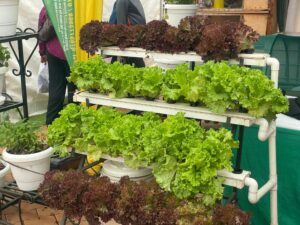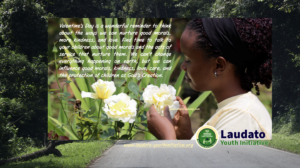By Laudato Voices | September 12, 2025.
Climate change has emerged as the most pressing threat to food security in Uganda, where the majority of the population depends on agriculture for their livelihood. Erratic rainfall patterns, prolonged droughts, floods, and increasing temperatures have significantly reduced agricultural productivity across the country. As subsistence farmers struggle to adapt to rapidly changing climatic conditions, yields of staple crops like maize, beans, and cassava have dropped, contributing to widespread food insecurity and malnutrition, especially among young people.
Impact of Climate Change on Agriculture in Uganda
Uganda’s agriculture is predominantly rain-fed, making it highly vulnerable to shifts in climate. According to the Food and Agriculture Organization (FAO, 2021), more than 70% of Uganda’s population relies on farming, yet the country has experienced increasing agricultural losses due to irregular weather patterns. In recent years, farmers have reported failed harvests and crop diseases that are closely linked to climate change-induced stresses such as drought and excessive rainfall. This is where the notion of climate resileint farming comes in, we need need to enhance our efforts towards green initiatives including serious action towards green renewable energy sources, going back to our local resilient food species etc.
The Uganda National Meteorological Authority (UNMA) reported that rainfall has become less predictable, leading to shortened growing seasons and reduced productivity (UNMA, 2023). This has a direct effect on food availability and income generation, particularly in rural areas where adaptive technologies and climate-resilient seeds remain largely inaccessible. Additionally, climate change has intensified pest outbreaks such as the fall armyworm, further reducing crop yields (Mubiru et al., 2022).
Food Security and Youth Malnutrition
The consequences of poor agricultural yields extend beyond food availability to affect nutrition, particularly among Uganda’s youth. Malnutrition remains a persistent problem in Uganda, with stunting affecting 29% of children under five (UNICEF, 2023). This is linked to a decline in household food production and diversity due to climate-induced crop failures.
Young people are among the most vulnerable groups facing food insecurity, yet they also hold the potential to lead community-based resilience strategies. Investment in youth-centered agricultural programs that promote climate-smart practices is crucial to reversing the trend of declining food productivity and rising malnutrition. one of our Laudato Youth voiced her concern on this issue through her gift of poetry.
Faith and Environmental Responsibility: A Localized Call to Action
In Uganda, faith plays a central role in shaping community values and behaviors. Therefore, efforts to combat climate change must be grounded in local beliefs and practices to be effective. Faith-based environmental stewardship, as championed by initiatives like our Laudato Youth Initiative, provides a model for integrating spiritual responsibility with climate action.
Care for creation for many of the young people is a value that must begin at home, in our grassroots communities, and in our institutions must intergrate programs that reflect a growing recognition that environmental action is a value that can be taught and through our Laudato Si clubs model we have come acknowlgedge that starting from grassroots level, rooted in cultural and spiritual identity is taking us a log way towards intergrating integral ecology. The Laudato Youth Initiative has demonstrated how faith-based clubs and institutions can unite people to protect the environment, promote sustainable agriculture, build resilience, and advocate for climate justice in ways that empower people to take personal responsibility to be part of the solution not the problem.
Climate Action is Food Security
Uganda stands at a critical crossroads. Without urgent and sustained climate action, the country risks deepening its food crisis and worsening malnutrition among its young population. Climate resilience must be treated not just as an environmental priority but as a national investment in food security, youth development, and long-term economic stability.
To secure Uganda’s future, emphasis must be placed on:
• Integrating climate change adaptation into national agricultural policies;
• Scaling up youth engagement in climate-resilient farming; like agro-forestry, our clubs at BLI have exemplified this so well
• Strengthening faith-based environmental action to build moral and community responsibility; our Laudato Si Clubs in institutions have proved vital in enhancing this effort.
• Investing in grassroots models like the Laudato Youth Initiative that demonstrate how spiritual values and practical action can be harnessed for environmental justice.
By uniting traditional values, science, and faith-based leadership, Uganda can build a food system that is sustainable, inclusive, and resilient. Climate action is no longer optional, it is a moral and developmental imperative for the health and future of Uganda’s youth.
References
Food and Agriculture Organization. (2021). The impact of disasters and crises on agriculture and food security: 2021. https://www.fao.org/3/cb3673en/cb3673en.pdf
Mubiru, D. N., Komutunga, E., & Agona, A. (2022). Climate change and its impacts on agriculture in Uganda. Uganda Journal of Agricultural Sciences, 23(1), 15-26.
Uganda National Meteorological Authority (UNMA). (2023). Climate outlook and implications for agriculture. https://www.unma.go.ug
UNICEF. (2023). Nutrition situation in Uganda. https://www.unicef.org/uganda/reports/nutrition-situation














